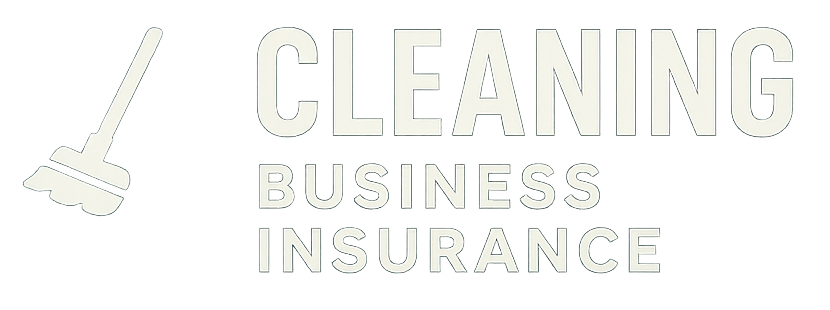Outdoor cleaning businesses in California face unique challenges compared to indoor cleaning services. From maintaining commercial properties and residential exteriors to managing landscaping cleanup, these businesses operate in environments that are highly susceptible to weather-related risks. Rain, flooding, and wildfire smoke are common occurrences in many parts of California, and they not only impact daily operations but can also significantly affect insurance needs and coverage. Understanding how weather influences insurance policies for outdoor cleaning jobs is crucial for protecting your business, your staff, and your clients.
The Impact of Rain on Outdoor Cleaning Businesses
Rain may seem like a minor inconvenience, but for outdoor cleaning companies, it presents multiple risks. Wet surfaces increase the likelihood of slips and falls, both for employees and clients. Equipment such as pressure washers, vacuum systems, and electrical tools can be damaged if not properly protected, and vehicles transporting cleaning equipment may be at higher risk of accidents on slick roads.
Insurance providers recognize these hazards and often adjust coverage requirements or premiums based on weather-related risks. For example, general liability insurance may cover bodily injury if a client or employee slips during rainy conditions, but the policy could have limitations if the business did not follow proper safety protocols. Property insurance for tools and equipment may also have clauses related to water damage or improper storage during inclement weather. Understanding these policy details is essential for business owners to avoid unexpected gaps in coverage.
Flooding Risks and Insurance Considerations
California is prone to localized flooding, especially during heavy rainstorms or when infrastructure cannot handle sudden water accumulation. Outdoor cleaning businesses that operate near flood-prone areas, such as river-adjacent neighborhoods or low-lying commercial districts, face additional risks. Flooding can damage cleaning vehicles, equipment, and even client properties, creating liability exposure for the business.
Flood-related damage is often excluded from standard commercial insurance policies. Many outdoor cleaning companies may need additional coverage, such as flood insurance or an endorsement to their existing policy, to ensure that both property and equipment losses are covered. Without this, a single flood event could result in thousands of dollars in out-of-pocket expenses, slowing business operations and potentially harming the company’s reputation.
Wildfire Smoke and Its Consequences
Wildfires are a recurring problem in California, affecting outdoor air quality and creating significant hazards for businesses. Smoke from wildfires can pose health risks to cleaning staff, particularly those with respiratory conditions or prolonged exposure to outdoor smoke. Additionally, ash and soot can damage vehicles, tools, and surfaces being cleaned, which may result in increased liability claims from clients.
Insurance providers are increasingly aware of wildfire-related risks and may include specific clauses related to smoke damage, equipment contamination, or employee health hazards. Workers’ compensation insurance is particularly important in these scenarios, as employees exposed to harmful air quality may require medical treatment. Companies that operate in wildfire-prone regions need to evaluate their insurance policies carefully and may need to invest in additional coverage to mitigate these risks.
Adjusting Operations to Reduce Weather-Related Insurance Risks
Proactive measures can help outdoor cleaning businesses reduce the impact of weather on insurance costs and claims. Scheduling jobs around weather forecasts, implementing strict safety protocols for wet conditions, and providing protective gear for staff during smoky or polluted days can minimize the likelihood of accidents and injuries. Proper vehicle maintenance, weatherproof storage for tools, and regular employee training on hazard recognition are all steps that can help prevent claims and maintain lower insurance premiums.
Documenting all safety procedures and incident reports is also critical. Insurance companies often review claims history and safety practices when determining premiums, so maintaining a detailed record of proactive measures can lead to better coverage options at reduced costs.
Why Comprehensive Insurance Coverage is Essential
Given the variety of weather-related risks in California, outdoor cleaning businesses cannot rely on minimal insurance. A well-rounded insurance plan typically includes general liability to cover third-party injuries or property damage, commercial property insurance for equipment and vehicles, workers’ compensation for employee injuries, and endorsements for flood or smoke-related incidents where necessary.
By investing in comprehensive insurance coverage, business owners ensure that weather disruptions—whether rain, flood, or wildfire smoke—do not result in devastating financial losses. Insurance also reassures clients that the company is prepared for unexpected circumstances, enhancing credibility and building trust.
Conclusion
Operating an outdoor cleaning business in California comes with unique weather-related challenges. Rain, flooding, and wildfire smoke can all create operational hazards, damage equipment, and increase liability exposure. These risks directly affect insurance needs, influencing policy coverage, premiums, and potential exclusions.
By understanding the relationship between weather and insurance, outdoor cleaning companies can make informed decisions, implement preventive safety measures, and secure comprehensive coverage that protects their business, employees, and clients. Prioritizing insurance planning and risk management not only ens
